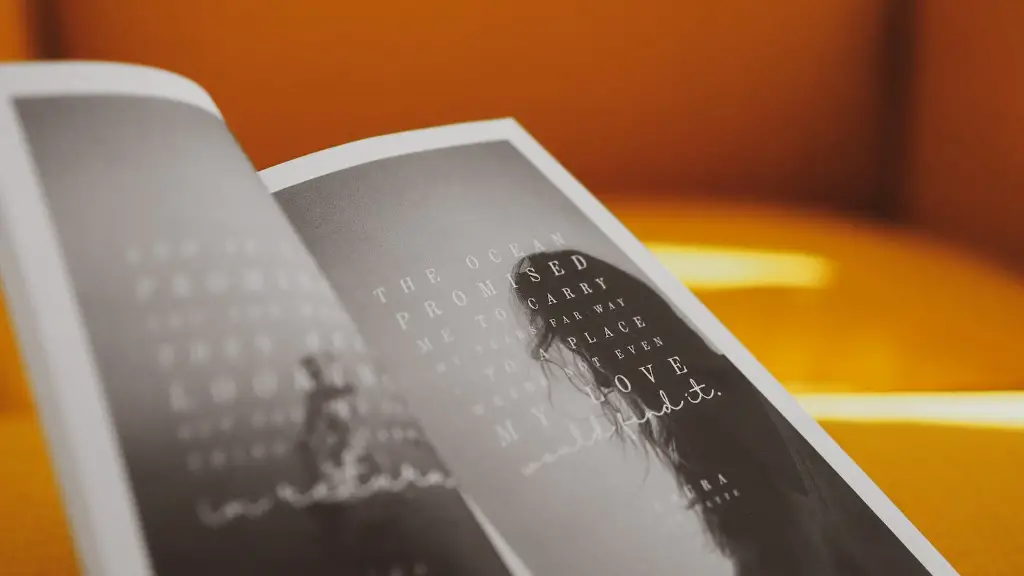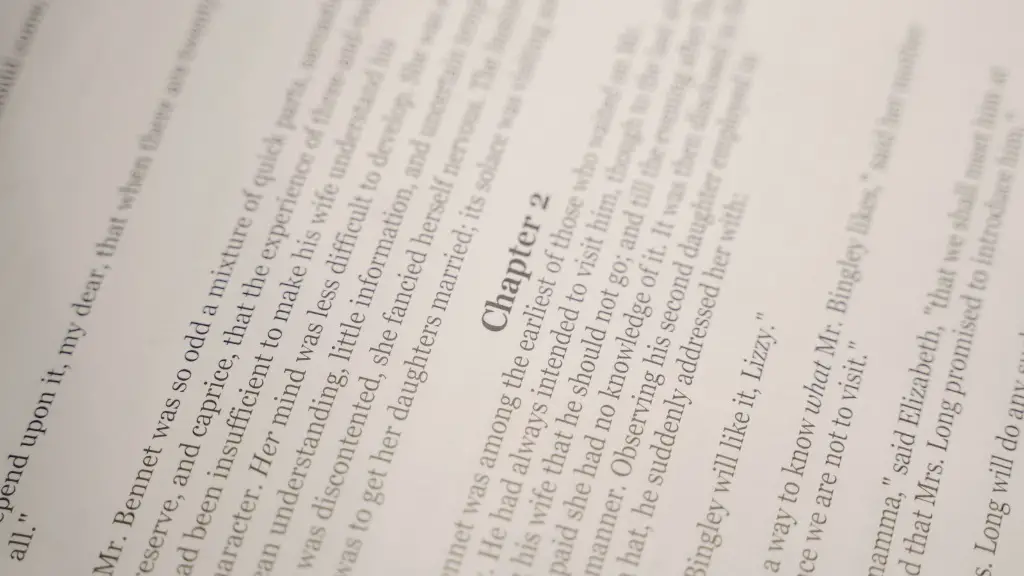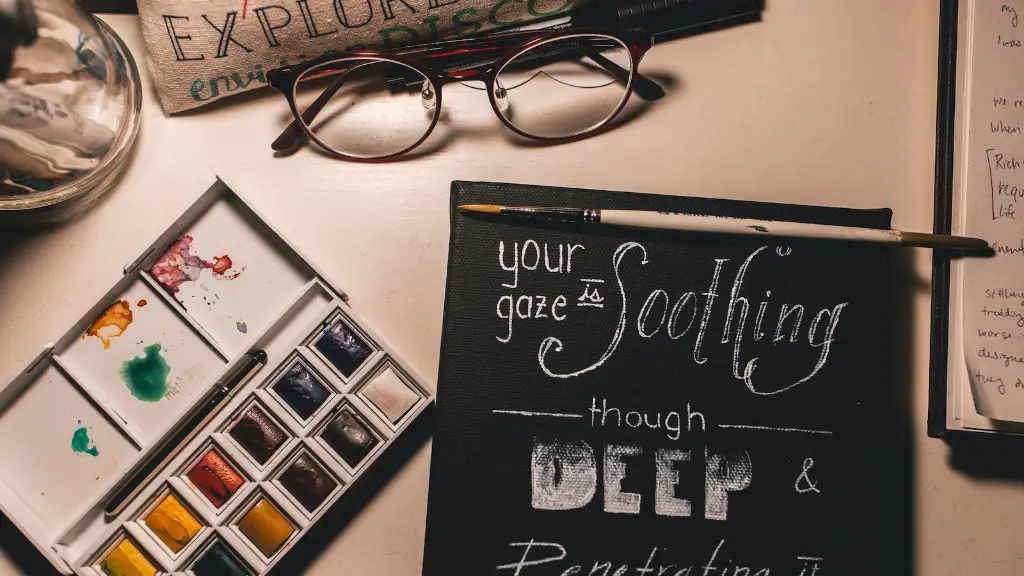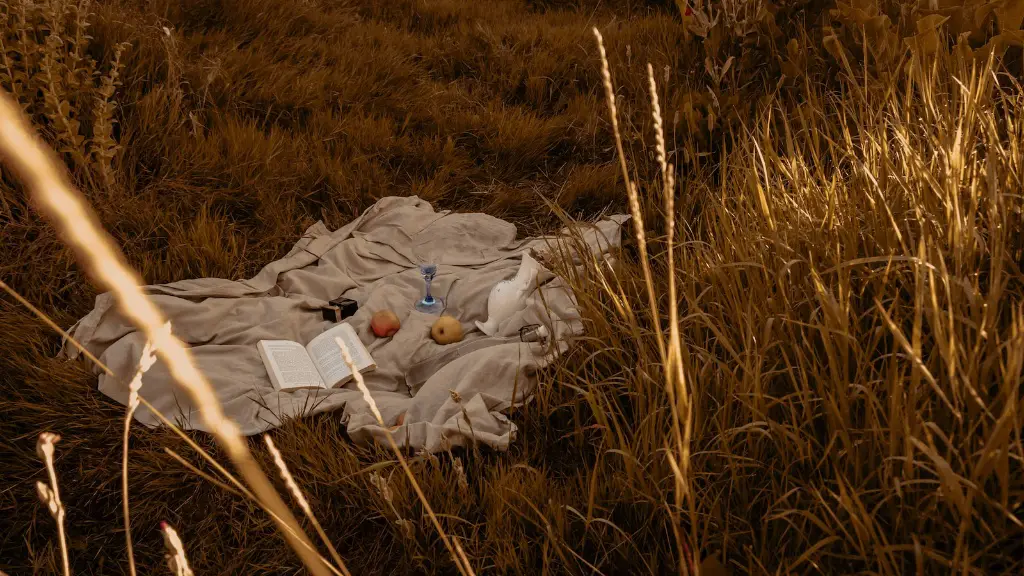Is Poetry a Genre?
Poetry is an art form with deep historical roots, with works from antiquity often playing a large role in our current understanding of literature and oral tradition. However, what is perhaps more interesting than the origin of poetry is whether or not it can be classified as a genre. In other words, can we simply define poetry by its literary characteristics and categorize it in a specific way?
Many experts would argue that, strictly speaking, a single poetic work cannot be strictly classified as “poetry”. Rather, they suggest that poetry should be looked at as an umbrella term encompassing a range of genres and styles, such as romantic poetry, confessional poetry, odes, sonnets, monologues and ballads. This balance between structure and freedom of expression is what makes a poet’s work so special, as they have the ability to create something unique within the wider context of poetry.
When examining individual literary pieces, it can be difficult to determine a precise genre for them. For example, the poem “The Hound of Heaven” by Francis Thompson could be classified as a narrative poem, as well as a religious lyric. Different elements of the poem appear to speak to different genres: the poem’s use of religious imagery and references to Christianity suggest to readers that it is a religious lyric, but the poem’s narrative arc and characters can also indicate that it could be a narrative poem.
The answer to the question of whether poetry can be categorized into a single genre, therefore, is complicated. While certain aspects of poetry suggest that it could be classified as a single genre, other elements of poetic works make it difficult to categorize them as such. Ultimately, the complexity and variety that comes with poetry ensures that it remains a multifaceted form of art.
Evolving Nature of Poetry
The evolution of the form and structure of poetic works over time is an important factor to consider when attempting to classify poetry as a single genre. Historically, the styles and rules of poetry varied from culture to culture and period to period, and even within countries, continents and continents of origin, different types of writing forms took shape.
Consequently, there are no universal rules that define how a poetic work should be constructed, and there is no single term or element which could encompass all types of poetry. As a result, each kind of poetic works carries its own unique characteristics, from rhyme and metre to language and images. Consequently, the notion that poetry can be categorised into a single genre is questionable at best.
Furthermore, modern writers are increasingly using poetic techniques and approaches in works which do not necessarily fit into traditional forms of poetry. These works blur the lines between genres, as they may contain elements of fiction as well as dramatic or lyrical writing. Such works highlight the evolution of the form and structure of poetry and further complicate the question of whether we can truly classify poetry as a single genre.
Role of Poetry in Society
Aside from their literary merits, literary works of all kinds have a long-standing role in society. This is particularly true when it comes to poetry, which since ancient times has been used to reflect, comment on and express thoughts, feelings and attitudes towards society. Over the centuries, poets have used their work to provoke thought, to question and to challenge the status quo.
Therefore, regardless of whether we can classify it as a single genre, the importance of poetry to society cannot be denied. As a form of expression, it has the unique ability to create a bridge between different ideas, cultures and ideologies. As such, it would be a mistake to overlook the importance of poetry and its power to shape our society, even if there is no single term that encapsulates its vastness.
Potential Impact of Categorising Poetry
It is important to consider the potential consequences of attempting to categorise poetry into a single genre. In making such a move, it could be assumed that certain poetic works may be favoured over others, and this could lead to a narrowing of the range of forms of poetry that are accepted into the literary cannon. Such a restriction could limit the scope of literary works available to poets and readers, and by extension, negatively influence the evolution of new poetic works.
Ultimately, the complexity and variety of poetic forms makes it difficult to determine whether poetry can truly be grouped into a single genre. Even if such a categorisation was possible, it is important to consider the potential implications it may have. In making the decision to identify poems by genres such as romantic poetry, confessional poetry, odes or sonnets, we risk limiting the variety of works in literature and hindering the creative process.
Role of the Reader in Identifying Poems
Ultimately, the question of whether or not poetry can be classified as a single genre is an open one. As there are no universal rules which define how a poetic work should be constructed, individuals can identify poems in whatever way best suits them. Poetic works can serve a variety of functions and an individual reader can choose to interpret these works in whatever manner they wish.
Rather than categorising poems in a specific way, it is often more rewarding and fruitful to approach works of poetry with openness and curiosity. In doing so, readers can allow themselves to be swept away by the beauty and power of poems, and explore the various genres, styles and forms of poetic expression.
Categorising Poetry by Mood
Another approach to categorising poems is by the mood they evoke. Rather than focusing on the form and structure of poetic works, this categorisation attempts to identify the tone and emotion that the poem elicits. Such a grouping could be based on themes such as joy, sorrow, love, despair and nostalgia. Such categories can help readers to connect with a poem on a more personal level, as they can think about how the poem makes them feel when reading it.
By understanding the feelings and emotions that a poem H2H2H2H2H2H2 trigger, readers can gain a deeper appreciation for it and better understand its impact. Such an approach to the categorisation of poems can open up new possibilities for how readers interpret and understand works of poetry.
Exploration of Categorization by Subject-Matter
A third approach to the categorisations of poems is by the subject matter that is addressed. In this type of categorisation, poets can classify their works in various subject-oriented groups such as nature, love, war, religion, philosophy and politics. This type of categorisation could help poets to expand the range of topics they address in their work, as it allows them to explore unfamiliar themes while keeping their work within the confines of a similar genre.
In addition, categorising poems by subject matter can be a useful tool for readers to explore unfamiliar works. By identifying and grouping poems in this way, readers can gain a better understanding of certain topics, as they can explore different poems which focus on a single theme. In this way, readers may develop a broad and informed understanding of a certain topic or theme, while at the same time, gaining an appreciation for the various forms of poetic expression.
Conclusion
The question of whether poetry can truly be classified as a single genre is a difficult one to answer. On one hand, the fluidity and complexity of literary works makes it unlikely that all poetic works could be categorised as one entity. On the other hand, attempting to make such a move could create restrictions for readers and poets alike and prevent the widespread acceptance of works from varying genres.
Overall, it is clear that the answer to the question of whether poetry is a genre is a complicated one. Regardless of the answer, however, we cannot deny the importance of the form and its long-standing role in shaping civilisation. When approaching works of poetry, it is important to do so with an open-mind and an appreciation of their complexity and potential to evoke feelings and emotions.





